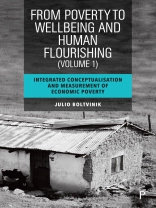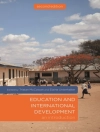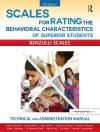This book offers a holistic view of Julio Boltvinik’s vast and important work on poverty conceptualisation and measurement. While well known to Spanish-speaking audiences, this volume brings these works together to offer access for English-speaking audiences for the first time.
The book provides the foundations, application and empirical examples of Boltvinik’s Integrated Poverty Measurement Method, which could potentially transform poverty narratives globally as it has done in Mexico.
Deeply critical of available poverty approaches, it provides a challenging and radically new way of conceiving and measuring poverty, offering the only multidimensional poverty measurement method which includes time poverty and allows all Aggregate Poverty Measures to be fully calculated.
สารบัญ
Introduction
Part 1: Conceptualising poverty
1. Households’ reproduction logic, their well-being sources and concepts of needs and poverty
2. Critique of the Political Economy of Poverty (CPEP), Part 1: on different answers to the question of the constitutive elements of the good/full life
3. Critique of the Political Economy of Poverty, Part 2: conceptual maps and definitions
4. Principles and good practices of poverty conceptualisation
Part 2: Measuring poverty
5. Principles and good practices of poverty measurement
6. A typology of poverty measurement methods: a critique of direct and indirect poverty measurement methods
7. Combined methods of poverty measurement
8. The Integrated Poverty Measurement Method (IPMM)
9. Aggregate poverty measures (APM)
Epilogue
เกี่ยวกับผู้แต่ง
Julio Boltvinik is a Professor for El Colegio de México’s Ph.D. Programme. While being a member of the Chamber of Deputies (2003-2006) he promoted a Law that enforces multidimensional poverty measurement in Mexico. He has published widely on poverty, social policy, well-being and human flourishing, mainly in Spanish. He has written a weekly column in La Jornada, a Mexican critical newspaper, since 1995.












